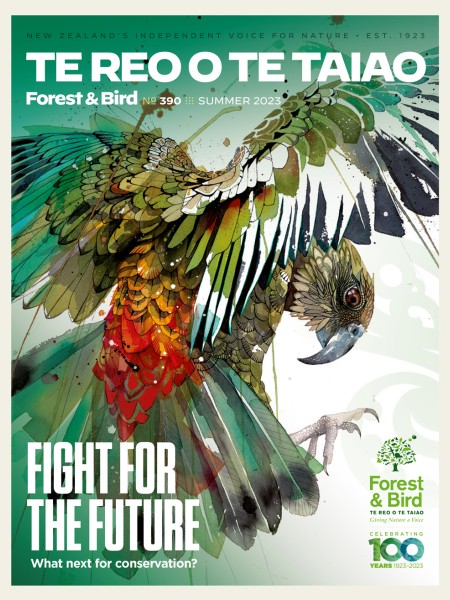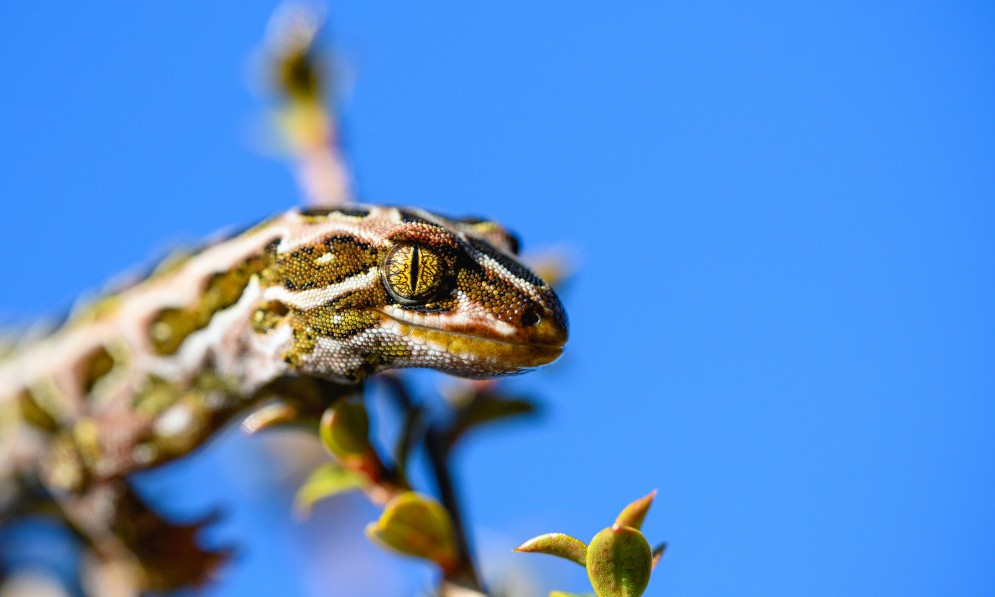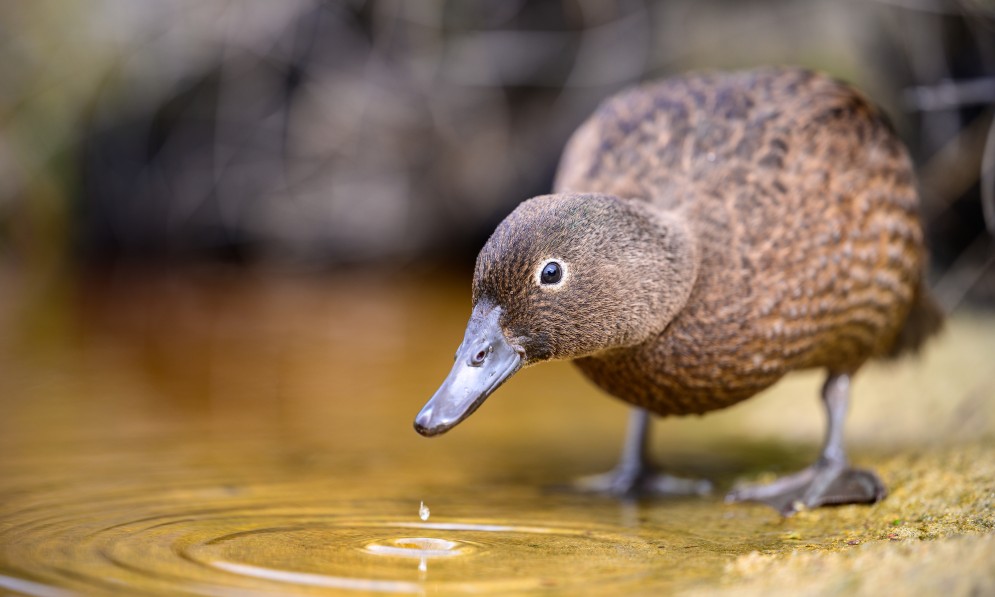Alex Stone looks at the challenges ahead for conservation as we head into 2024 with a new government and an uncertain climate future. Part 4 of 4.
Forest & Bird magazine
A version of this story was first published in the Summer 2023 issue of Forest & Bird magazine.

⏎It’s time for a fundamental shift in thinking about the future of nature conservation in a climate emergency.
The election campaign of 2023 was notable for its almost complete lack of discussion about conservation priorities.
As we enter an era of austerity politics, this outlook may not improve, with DOC funding cuts on the cards. Writing in the New Zealand Herald in September, Simon Wilson commented on the much-discussed savings to most government departments, saying: “Imagine being an airline pilot and discovering the boss had sent most of the ground staff home.”
Forest & Bird’s chief executive Nicola Toki took up this theme before the election, calling out the lack of political leadership.
“There’s a quote by Sir David Attenborough that I keep coming back to. ‘Many individuals are doing what they can. But real success can only come if there is a change in our societies and in our economics and in our politics.’
“An emergency doesn’t call for a plan at some point in the future. It calls for action. Someone has to grab the fire extinguisher and start putting out the fire.
“Our political leaders say ‘we are focusing on bread-and-butter issues’.
What could be more bread and butter than the foundation of the system that gives us food, water, and fresh air – te taiao nature?” Many people we talked to for this article pointed out the need for a fundamental shift in thinking – moving to a top-of-the-waterfall mentality rather than dealing with serious climate and conservation issues with an ambulance at the bottom.
If our new political leaders can provide properly targeted and sustained funding, I have faith our young Kiwi captains of conservation can steer us to a better future, one that sees nature flourishing in every corner of Aotearoa and the wider world.

Tukutuku rakiurae Harlequin gecko. Image Jake Osborne
REWILDING OUR COUNTRY
A tramping track to the future
- We need to focus on restoring our depleted marine and freshwater ecosystems, while properly funding predator and browsing mammal control. Together, these actions will bring huge biodiversity benefits.
- Controlling browsing mammals and removing possums from our native forests and shrublands will restore the health of these important carbon sinks.
- Blue carbon matters too – we need to heal our coastal and marine environments. An astonishing 80% of the Earth’s biodiversity lives in the ocean.
- Every wetland counts – no more should be lost and the existing number doubled so they can absorb more carbon, protect communities from flooding, and boost wildlife.
- Significant and sustained funding for nature-based solutions, such as making room for rivers, will protect communities from storm damage, flooding, and erosion.
- From maunga to moana, iwi-led conservation initiatives funded by the Crown will become increasingly important for restoring terrestrial and coastal landscapes at-scale.
- Public–private partnerships may come to dominate the conservation landscape, making up a shortfall in government funding, although this could be a double-edged sword.
- Urban-based community groups will play a vital role inspiring more New Zealanders to restore native habitats. We will rely on technology to achieve our conservation goals.
- Strong environmental legislation will be needed to overcome out-dated regulations and provide a springboard for transformative change.
- If we can shift to top-of-thewaterfall thinking and properly plan and fund nature-based solutions, we can mitigate climate change, protect communities, and boost biodiversity.
There’s a book to be written on each of these subjects, and many already have been. Suffice to say, each of these priorities brings a great many challenges – and opportunities – ahead.
Please support Forest & Bird’s conservation work during 2024 – go to www.forestandbird.org.nz/support-us/appeals/donateforest-bird

Campbell Island teal. Image Jake Osborne
This is part 3 of a 4-part series:
- Fight for the future
- Rewilding our oceans & nature-based solutions
- Transforming townscapes, iwi-led conservation & partnerships
Alex Stone is an award-winning New Zealand writer, poet, and artist based on Waiheke Island.
⏎
